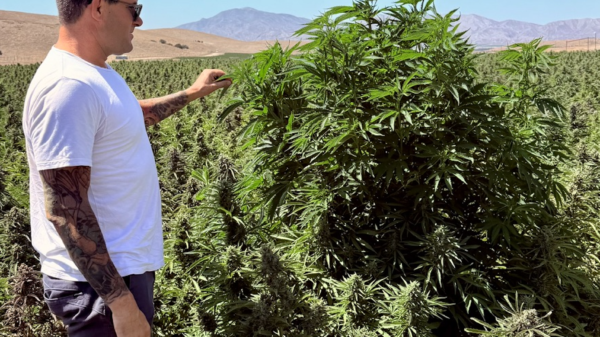Although cannabis has been legal in California for two years, and the state is considered the largest legal pot market in the world, illicit stores almost outnumber licensed businesses 3-to-1, according to an industry group.
California is the hottest market for cannabis in the U.S. and sales are expected to reach US$3.1 billion this year and surge to US$7.2 billion by 2024, according to BDS Analytics. But the slow rollout of government-issued retail licenses has allowed the black market to continue to dominate the legal sector.
According to the United Cannabis Business Association (UCBA), a California group of legal weed businesses, there are currently 2,835 illicit sellers statewide, which includes storefronts and delivery services. By comparison, there are just 873 legal sellers in California.
One of the major hurdles for the legal industry in the state is at the municipal level, as many city governments have refused licences to allow legal stores to open. On top of that, high tax rates at the local and state level have pushed up prices in the legal market making it hard to compete with the cheaper black market, where an abundance in supply and competition keeps prices lower.
In an effort to support the legal industry, California police have tripled the number of raids on illegal pot shops over the past year snatching up US$30 million worth of black market cannabis. But state authorities say shutting down rogue storefronts has “always been a whack-a-mole situation.”
Enforcement issues, high taxes and strict regulations have all contributed to lower-than-expected tax revenues in California. Some projected the state would haul in US$1 billion in taxes in the first year of legalization, but it ended up raising US$350 million instead.
How will the state nip this the bud ? Nearly 3,000 illegal marijuana businesses found in California audit, dwarfing legal tradehttps://t.co/7jNp7A0U7x
— Richard Winton (@LAcrimes) September 11, 2019
Is Weedmaps fueling the black market?
When the UCBA revealed its illegal-shop analysis to the public this month, the group of legal pot businesses set a target on Weedmaps, an international website that lists both illicit and legal cannabis stores for customers to access.
The California government sent Weedmaps a cease-and-desist letter last year because the site lets unlicensed sellers to advertise, which explicitly violates the state’s cannabis regulations.
While facing US$30,000 in fines per day, Weedmaps said in July it will phase out the ads from rogue companies and be completely free of illegal advertising by the end of the year. But that is not quick enough for the UCBA.
“We don’t want to let Weedmaps dictate when they’re going to stop breaking the law,” UCBA president, Jerred Kiloh, told NBC News.
However, Weedmaps CEO Chris Beal is not convinced the company’s site and app is the real culprit.
“This is really superficial. The real underlying problem is that there’s insufficient licenses (to) address market demand,” he said.
Weedmaps operates in nine countries and in most states have legalized cannabis in some form. Beal argues no other jurisdiction see the same problems as California due to the state’s prolific black market and relatively small legal sector to compete with it.
In the midst of a health crisis stemming from the illicit market, #Weedmaps continues to advertise for unlicensed #cannabis. 75%+ of their active listings in CA do not show a license, fines should be enforced immediately to keep CA safe. Read our letter: https://t.co/MTyxOx4UI4
— United Cannabis Business Association (@UCBA_Network) September 11, 2019
Are cities given too much power?
The California government said it is working on ways to intervene with the municipalities’ authority on banning legal cannabis businesses from operating.
The Bureau of Cannabis Control (BCC) said it has been a challenge to help the licensed store owners to open up statewide.
“Unfortunately, there are a number of factors that prevent us from doing that. It’s not all under our control,” said BCC spokesman Alex Traverso, who added less than 25 per cent of the cities in California allow legal sales.
California lawmakers are tabling legislation that would require municipalities to lift bans on cannabis stores, in jurisdictions where voters supported Proposition 64, the 2016 initiative that legalized recreational marijuana in the state.














